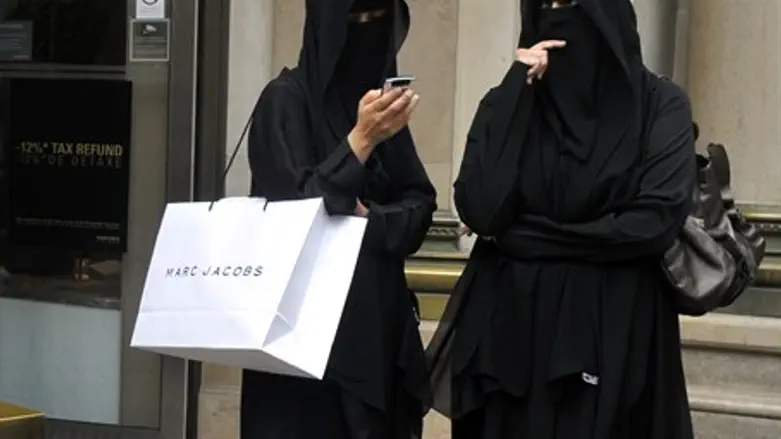
Western women who join Islamic State terrorists are driven by the same ideological passion as many male recruits and should be seen as potentially dangerous cheerleaders, not victims, experts told AFP.
A new study out on Wednesday said the estimated 550 women who have travelled to Iraq and Syria are expected to marry, keep house and bear children.
Despite being banned from fighting, the study found they were active propagandists for the cause.
"The violent language and dedication to the cause is as strong as we find in some of the men," said extremism expert Ross Frenett of the Institute for Strategic Dialogue, who co-authored the new report.
"The worry is that as ISIS loses ground, as everyone hopes it does, that more and more of these women will transfer from the domestic
world they're in now to a more violent one," he told AFP.
Much has been written about young women going to become "jihadist brides," but the prevailing narrative of wide-eyed recruits drawn by a sense of excitement belies the importance of their own faith and passions.
Frenett and his fellow researchers have been monitoring hundreds of women on social media, but focused for the study on 12 women from Austria, Britain, Canada, France and the Netherlands who are living with ISIS in Iraq and Syria.
Some of the women endorsed the bloody beheadings carried out by the terrorists - "I wish I did" it, one said after US journalist Steven Sotloff was killed - as well as railing against Western governments and the suffering of Muslims.
"My best friend is my grenade... It's an American one too. May Allah allow me to kill their Kanzeer [pig] soldiers with their own weapons," one said.
Crucially, the women also provide advice and encouragement to other women thinking of joining.
"They're actively recruiting women and providing them with assistance advice and referrals to go to ISIS-held territory," said Frenett. "And they are acting as cheerleaders for terrorist attacks back home."
Driven by adventure, alienation
The report echoes work conducted by other researchers about the dangers of radicalised women, a threat given a face during the attacks on Paris earlier this month.
Hayat Boumeddiene, the 26-year-old companion of one of the gunmen, fled to Turkey before the attacks and is now in Syria.
Afterwards, an old picture emerged of her wearing the full black Islamic robe and headgear, and aiming a crossbow at the camera.
Melanie Smith, of the International Centre for the Study of Radicalisation (ICSR) at King's College London, maintains a database of about 70 female ISIS members.
She said British women are inciting attacks by suggesting to people who could not travel to Iraq and Syria, "Why not carry out something at home?"
"You can see women online being frustrated about the fact they can't fight and they suggest to each other that they could do something else," she told The Observer newspaper.
Jayne Huckerby, associate professor at Duke University School of Law, said in a commentary for The New York Times that women are being driven by the same factors that push men into the arms of the ISIS group.
"Despite stereotypes about their domesticity and passivity -- the idea that they must always be under men's influence or tricked into joining -- women are drawn to groups like the Islamic State by many of the same forces as men: adventure, inequality, alienation and the pull of the cause," she said.
Despite their passion, many of the women in Frenett's research found it difficult to leave their families behind, and he said this could be key to keeping them at home.
"The biggest barrier to them leaving, both emotional and practical, isn't the state -- it's their own families," he said, stressing authorities should better support relatives.
He said it was also important to give women who make it to Iraq and Syria a way out if they become disillusioned, which most often happens when their husbands are killed fighting.
"There needs to be a path available to them when they come home," he said.
